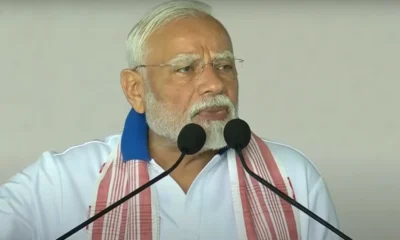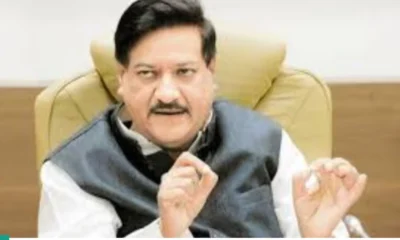India News
Mann Ki Baat: PM pays tributes to Atalji for political reforms

India News
Manipur Assembly to meet at 4 pm today, floor test likely under new chief minister
The Manipur Legislative Assembly will convene at 4 pm today, with a floor test likely as the new chief minister seeks to prove his majority in the House.
India News
PM Modi skips Lok Sabha reply as protests force repeated adjournments
PM Modi did not deliver his Lok Sabha reply today after sustained Opposition protests led to repeated adjournments over a dispute involving Rahul Gandhi’s proposed speech.
India News
President’s Rule revoked in Manipur as NDA set to form new government
President’s Rule has been withdrawn in Manipur nearly a year after its imposition, paving the way for a new NDA-led government under Yumnam Khemchand Singh.
-

 India News24 hours ago
India News24 hours agoPresident’s Rule revoked in Manipur as NDA set to form new government
-

 India News21 hours ago
India News21 hours agoPM Modi skips Lok Sabha reply as protests force repeated adjournments
-

 Latest world news7 hours ago
Latest world news7 hours agoNew Delhi free to buy oil from any source, Russia says amid US deal claims
-

 Cricket news7 hours ago
Cricket news7 hours agoPakistan PM Shehbaz Sharif confirms boycott of India match at T20 World Cup
-

 Latest world news6 hours ago
Latest world news6 hours agoPakistan faces domestic backlash after India secures lower tariffs in US trade deal
-

 India News3 hours ago
India News3 hours agoManipur Assembly to meet at 4 pm today, floor test likely under new chief minister

















